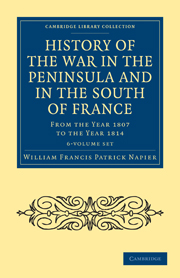 If you’ve ever read anything about the life of Mozart, you’ve probably also read a bit of Michael Kelly, even if you don’t remember him. He was the Irish tenor working for the Viennese court opera company who created the (usually dual) roles of Don Basilio (the music teacher) and Don Curzio (the lawyer) in the first performance of Mozart’s Le Nozze di Figaro in 1786. His account, in his memoirs, of a rehearsal is quoted everywhere. The buffo baritone Francesco Bennuci was the first Figaro:
If you’ve ever read anything about the life of Mozart, you’ve probably also read a bit of Michael Kelly, even if you don’t remember him. He was the Irish tenor working for the Viennese court opera company who created the (usually dual) roles of Don Basilio (the music teacher) and Don Curzio (the lawyer) in the first performance of Mozart’s Le Nozze di Figaro in 1786. His account, in his memoirs, of a rehearsal is quoted everywhere. The buffo baritone Francesco Bennuci was the first Figaro:
‘Mozart was on the stage with his crimson pelisse and gold-laced cocked hat, giving the time of the music to the orchestra. Figaro’s song, “Non piu andrai, farfallone amoroso”, Bennuci gave, with the greatest animation and power of voice.
I was standing close to Mozart, who, sotto voce, was repeating, Bravo! Bravo! Bennuci; and when Bennuci came to the fine passage, “Cherubino alla vittoria, alla gloria militar”, which he gave out with Stentorian lungs, the effect was electricity itself, for the whole of the performers on the stage, and those in the orchestra, as if actuated by one feeling of delight, vociferated Bravo! Bravo! Maestro. Viva, viva, grande Mozart. Those in the orchestra I thought would never have ceased applauding, by beating the bows of their violins against the music desks. The little man acknowledged, by repeated obeisances, his thanks for the distinguished mark of enthusiastic applause bestowed upon him.’
Kelly (characteristically), while stating that Mozart was ‘the greatest master of his art’, brings the narrative rapidly back to himself: whether Don Curzio should stutter while singing as well as in the recitatives was a point of dispute between him and the composer, and we get nearly three pages of what happened; and how he (Kelly) was right; and how Mozart later conceded that he (Mozart) had been in the wrong; and how all subsequent performances were inferior to his own on this point. But then he also states that in the second-act sextet ‘I had a very conspicuous part’ – which people who know the work would probably dispute . . .
Kelly was born on Christmas Day 1762 in Dublin. His was a musical household – his father made his living as a wine merchant, but was also master of ceremonies at Dublin Castle, and young Michael (and presumably his 13 siblings?) were taught piano and singing by the professional musicians, including Italian castrati, who were performing in the city. He charmingly recalls that he was first drawn to making a career out of music by seeing one of his teachers, Signor San Giorgio, in a fruit shop, eating first peaches and nectarines, and then an entire pineapple: ‘I asked myself why, if I assiduously studied music, I should not be able to earn money enough to lounge about in fruit shops . . . trifling as this little anecdote may appear, I firmly believe it was the chief cause of my serious resolution to follow up music as a profession.’ Interestingly, the dramatist and impresario John O’Keeffe, who knew Kelly well later in London, may have seen or heard him at the Crow Theatre, which O’Keeffe frequently mentions in his reminiscences of his early days in Dublin. (Another thing the two men had in common was a fulsome dedication of their respective memoirs to George IV, who supported them both in their old age.)
Kelly made his professional debut at the age of 15 singing (as a treble) a castrato role in place of the indisposed Signor Savoy. In 1778, Venanzio Rauzzini, a castrato as famous for his affairs with married women around the courts of Europe as for his voice (Mozart wrote the motet Exsultate, Jubilate for him) advised Michael’s father to send him to Italy for further training, and after a certain amount of heart-searching in the family, he set off for Naples, on a Swedish ship, taking a grand piano with him, plus letters of introduction to (inter alii) Sir William Hamilton, His Britannic Majesty’s ambassador at the court of Naples and husband of the more famous Emma.
The (neutral) ship was attacked and boarded by ‘a set of the greatest ragamuffins my eyes ever beheld’, the crew of an American privateer. They proceeded to attempt to smash open the piano’s case: ‘I manfully [italics in original] began to weep, and cry out, “Oh! My dear piano-forte,” etc. etc. The cabin boy, who was about my own age, called out, “For God’s sake don’t cry, Master Kelly”’, at which the first mate of the privateer started and looked round – ‘Don’t you remember me, I am Jack Cunningham, who when you were a little boy, nursed you and played with you.’ (He was the family gardener’s son, who had since gone to the bad.) The piano, and the ship, were saved.
The memoirs continue through two volumes in this melodramatic, enthusiastic and above all cheerful vein. The joys of studying and sightseeing in Naples, anecdotes of musicians and the opera, visits to Rome and Sicily, a first meeting, at Livorno, with Stephen and Nancy Storace, the brother a composer, the sister Mozart’s first Susanna (and also a pupil of Rauzzini), and both Kelly’s intimate and life-long friends, the first steps in a long and distinguished singing career, spending the evening listening to Mozart and Haydn playing in a string quartet . . .
In 1787, Kelly and Stephen Storace returned to England (where Kelly needed coaching in the clear enunciation of English), and his career alternated between performing at Drury Lane in the theatre season and touring in the provinces and in France (before and after the Revolution). In later life he began composing for the theatre, and opened a music shop (not financially successful). He formed a lifelong emotional as well as professional partnership with the soprano Anna Crouch, living (apparently amicably) with her and her husband until the pair separated in 1791, and then with her until her death in 1805 (though of course you don’t get a hint of this in the memoirs).
Volume 2 ends (apart from a long and interesting appendix on the history of the Italian Opera at the King’s Theatre) with a rather cloying paean to the wonderful graciousness of George IV, and mentions in passing ‘my housekeeper and watchful attendant during my many severe illnesses’. He had retired from the stage in 1808, though he continued until 1820 in his roles as manager of the King’s Theatre and music director at Drury Lane, but he was crippled by gout: the king’s patronage and the occasional benefit concert kept him in funds. His Reminiscences were apparently dictated to or ghosted by Theodore Hook (an embezzler, satirist, dramatist and all-round wastrel) though again there is no mention of this in the text. They were completed in 1825; he died in 1826. He was remembered as ‘a very kind and friendly man’ and this definitely comes across in this most lively and engaging account.
Caroline



Pingback: Haste Thee, Nymph… | Cambridge Library Collection Blog
Pingback: More Than One Genius In The Family | Cambridge Library Collection Blog
Pingback: A Country Clergyman | Cambridge Library Collection Blog
Pingback: A Prodigious Child | Cambridge Library Collection Blog
Pingback: John Baskerville, Type-Founder and Printer | Cambridge Library Collection Blog